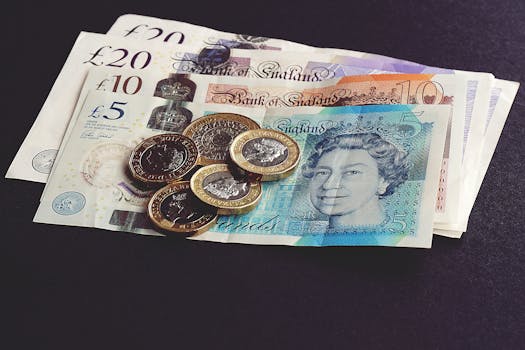'10 Reasons Why Risks and Rewards of NFT Investing Matters in 2025': A Comprehensive Guide
Introduction*
In the rapidly evolving digital landscape, the rise of Non-Fungible Tokens (NFTs) has sparked intrigue and sparked conversations about potential investments opportunities. However, understanding the risks and rewards associated with NFT investing is imperative for informed decision-making.
Industry Statistics & Data*
- Over $23 billion worth of NFTs were traded in 2021, indicating a significant surge in market interest. (Source: NonFungible)
- The average sale price of an NFT has increased by over 200% since 2020. (Source: ArtTactic)
Core Components*
1. Digital Ownership and Scarcity:*
NFTs provide irrefutable digital ownership and scarcity, enabling creators to tokenize unique digital assets. This has revolutionized the art and collectibles markets.
2. Provenance and Authenticity:*
The blockchain technology underlying NFTs ensures the provenance and authenticity of digital assets, eliminating concerns about counterfeiting and fraud.
3. Investment Potential:*
NFTs have emerged as a potential investment class, offering opportunities for appreciation in value and diversification of portfolios.
Common Misconceptions*
1. NFTs are a "get-rich-quick" scheme:*
Investing in NFTs requires research, due diligence, and an understanding of market dynamics. Short-term gains are not guaranteed.
2. All NFTs are valuable:*
Not all NFTs hold equal value. The value of an NFT is often driven by intrinsic factors such as rarity, artist reputation, and community support.
3. NFTs are only for art and collectibles:*
NFTs have applications beyond the art world, including gaming items, digital real estate, and even supply chain management.
Comparative Analysis*
Compared to traditional investment instruments, NFTs offer certain advantages:
- Enhanced Transparency: Blockchain technology provides transparent and auditable records of ownership and transactions.
- Digital Security: NFTs are secured by advanced cryptography, making them resistant to fraud and counterfeiting.
- Global Accessibility: NFTs can be purchased and sold on decentralized marketplaces, eliminating geographical barriers.
Best Practices*
- Do thorough research: Understand the specific NFT you're investing in, its creators, and the underlying technology.
- Manage risk: Diversify your NFT investments and allocate only what you can afford to lose.
- Keep updated: Stay informed about market trends, regulatory changes, and emerging NFT projects.
Expert Insights*
- "NFTs are fundamentally changing how we interact with digital assets, offering new opportunities for creators, investors, and collectors." - Christie's Global Head of Digital Sales
- "The use of NFTs in digital real estate has the potential to streamline property ownership and unlock new investment models." - CEO of Decentraland
Step-by-Step Guide*
1. Open a cryptocurrency wallet: Choose a reputable wallet that supports NFTs.
2. Connect to an NFT marketplace: Register on platforms like OpenSea or Rarible.
3. Find and purchase an NFT: Browse listings and make a purchase using cryptocurrency.
4. Store your NFT safely: Keep your NFT in a secure digital wallet or hardware wallet.
Practical Applications*
1. Invest in Digital Art:* Collectors can acquire unique digital artworks or invest in fractional ownership through NFT marketplaces.
2. Play-to-Earn Gaming:* NFTs facilitate in-game item ownership, allowing players to earn rewards and build value.
3. Virtual Real Estate:* NFTs can represent ownership of virtual land parcels in metaverse platforms like Sandbox and Decentraland.
Real-World Quotes & Testimonials*
"Investing in NFTs has allowed me to diversify my portfolio and support emerging digital artists." - NFT collector
"The blockchain-based provenance of NFTs gives me confidence in the authenticity of my digital art collection." - Art gallery owner
Common Questions*
Q: Are NFTs regulated?
A: The regulatory landscape for NFTs is still evolving, with different jurisdictions implementing varying regulations.
Q: How can I ensure the value of my NFT investment?
A: Factors such as the underlying asset, artist reputation, and community support contribute to NFT value.
Implementation Tips*
- Educate yourself: Stay updated on NFT technology and market trends by reading industry blogs and attending online courses.
- Join NFT communities: Connect with other collectors and enthusiasts through social media and online forums.
- Consider using an NFT portfolio tracker: Monitor your NFT investments and track their performance easily.
User Case Studies*
Case Study 1: A digital artist sold an NFT artwork for over $69 million, highlighting the investment potential of NFTs in the art market.
Case Study 2: A virtual land parcel in Decentraland was sold for $2.4 million, demonstrating the growing interest in virtual real estate NFTs.
Interactive Element*
Quiz:*
1. What is the primary benefit of using NFTs?
2. What is the difference between an NFT and a fungible token?
3. Name two potential applications of NFTs beyond art and collectibles.
Future Outlook*
- Fractionalization: Fractional ownership of NFTs may make high-value assets more accessible to a wider investor base.
- Cross-Chain Interoperability: NFTs may become compatible across multiple blockchains, facilitating seamless transfers and transactions.
- Environmental Concerns: The energy consumption associated with NFT transactions is being addressed through the adoption of eco-friendly blockchain protocols.
Conclusion*
'10 Reasons Why Risks and Rewards of NFT Investing Matters in 2025' provides a comprehensive understanding of the potential benefits and risks associated with NFT investments. By embracing industry best practices, seeking expert guidance, and staying informed about future trends, investors can leverage the transformative power of NFTs to navigate the digital landscape and make informed investment decisions.
